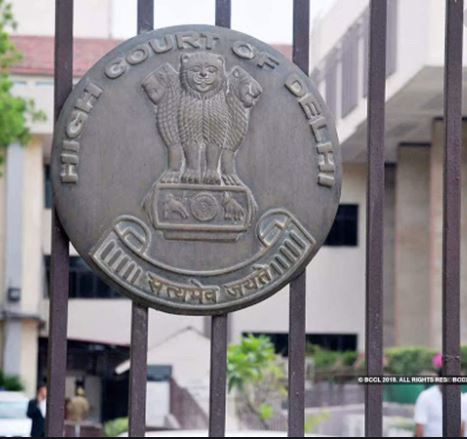The Central Government in its affidavit filed in Delhi High Court has denied that Section 6 and 7 of the Special Marriage Act, 1954 are ultra-vires to the Constitution of India while stating that the intention behind the Special Marriage Act is to keep safeguards to the interest of various parties involved.
The affidavit has been filed by the Ministry of Law and Justice, Legislative Department, in response to the plea challenging the provisions of issuing a public notice to invite objections under the Special Marriage Act, 1954.
“When a person gives notice for solemnisation of his marriage, the marriage officer shall publish the notice at conspicuous place in his office. After the expiration of thirty days from the date of publication of the notice for solemnisation of marriage, the marriage may be solemnised. If any person raises objection to the said marriage within a period of 30 days, the marriage officer shall not solemnise the marriage until he has enquired into the matter of objection,” reads the affidavit filed by Vinay Kumar Mishra, Legislative Deputy Counsel in the Ministry of Law and Justice, Legislative Department.
It further said, “It may not be possible to verify the credibility of such person if at least thirty days period is not given as mentioned in section 7 of the Act. Further, Sections 8 and 14 of the said Act laid down the procedure on receipt of objections, and hence, the procedure laid down in this Act for registration of marriage is fair and reasonable. Therefore the contention of the petitioner is not tenable. The conditions relating to solemnisation of Special Marriage mentioned under Section 4 of the Act is in consonance with the intention behind the Act.”
The Delhi High Court bench had issued notice last in the matter last year, filed by a couple, Nida Rehman and Mohan Lal, both belonging to different religious communities. The couple has challenged the vires of Sections 6 & 7 of the Special Marriage Act, 1954 wherein public notice has to be issued, inviting objections mentioned in Section 4 of the Act to the marriage within 30 days. The petitioner has thus prayed for the declaration of the said procedure as null and void and ultra-vires of the Constitution of India.
The petitioners have submitted that objections mentioned in Section 4(b)(c) of the Act can be ascertained on the basis of certificates issued from a government hospital or any prescribed authority. The objection under section 4(d) of the Act is inapplicable to inter-religious marriages, therefore the 30-day notice period violates the fundamental rights of the petitioners.
The Special Marriage Act, 1954 provides a special form of marriage in certain cases, for the registration of such and certain other marriages and for divorce. Sections 5, 6 and 7 of the Act reads as follows:
“Section 5. Notice of intended marriage.-When a marriage is intended to be solemnized under this Act, the parties to the marriage shall give notice thereof in writing in the form specified in the Second Schedule to the Marriage Officer of the district in which at least one of the parties to the marriage has resided for a period of not less than thirty days immediately preceding the date on which such notice is given.
Section 6. Marriage Notice Book and publication.- (1) The Marriage Officer shall keep all notices given under section 5 with the records of his office and shall also forthwith enter a true copy of every such notice in a book prescribed for that purpose, to be called the Marriage Notice Book, and such book shall be open for inspection at all reasonable times, without fee, by any person desirous of inspecting the same.
(2) The Marriage Officer shall cause every such notice to be published by affixing a copy thereof to some conspicuous place in his office.
(3) Where either of the parties to an intended marriage is not permanently residing within the local limits of the district of the Marriage Officer to whom the notice has been given under section 5, the Marriage Officer shall also cause a copy of such notice to be transmitted to the Marriage Officer of the district within whose limits such party is permanently residing, and that Marriage Officer shall thereupon cause a copy thereof to be affixed to some conspicuous place in his office.
Section 7. Objection to marriage.-(1) Any person may, before the expiration of thirty days from the date on which any such notice has been published under sub-section (2) of section 6, object to the marriage on the ground that it would contravene one or more of the conditions specified in section 4.
(2) After the expiration of thirty days from the date on which notice of an intended marriage has been published under sub- section (2) of section 6, the marriage may be solemnized, unless it has been previously objected to under sub-section (1).
(3) The nature of the objection shall be recorded in writing by the Marriage Officer in the Marriage Notice Book, be read over I and explained if necessary, to the person making the objection and shall be signed by him or on his behalf.”
NIDA-REHMAN-VS-STATE

